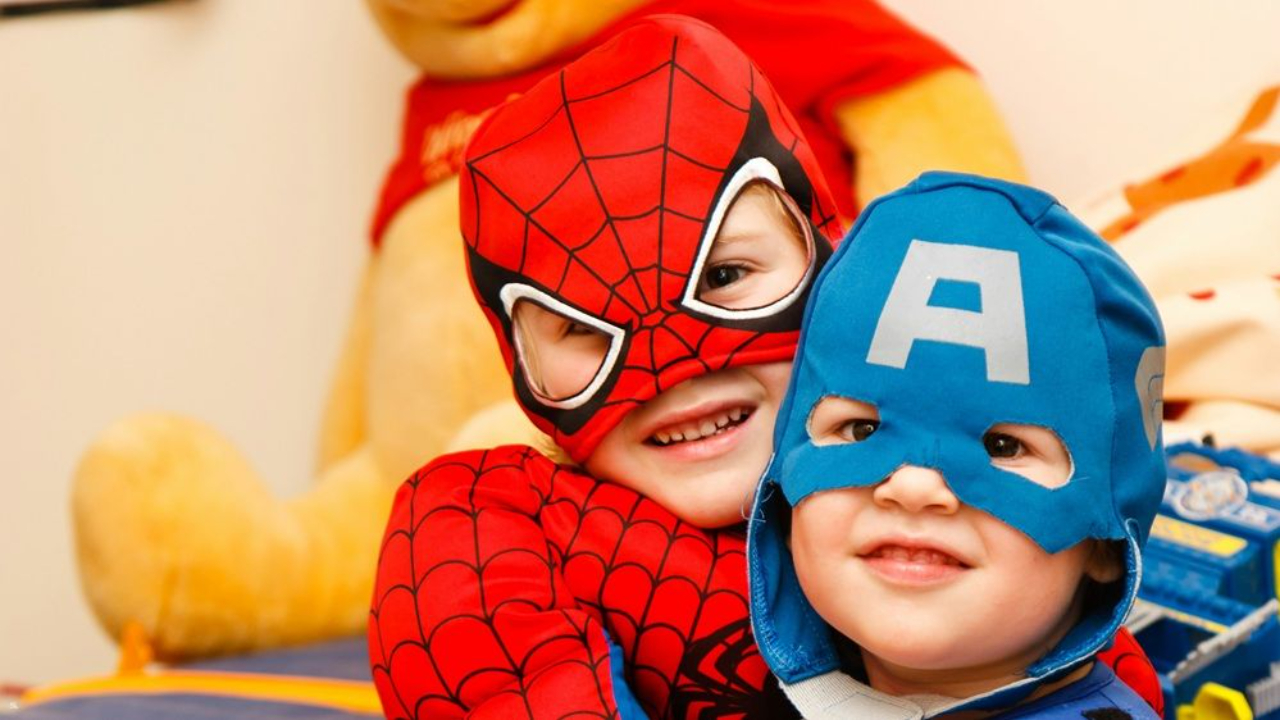Pretend Play Power: The Benefits for Deaf Children
Feb 21, 2025
Play is the universal language of childhood, a powerful tool that enhances understanding of a child's world and profoundly supports their holistic development.
For deaf and hard of hearing children, the nature of 'pretend play' becomes even more invaluable as it helps to enhance a range of skills within the linguistic, cognitive, social, and emotional realms.
In this blog post, I will unpack the importance of pretend play in the lives of deaf and hard of hearing kids and the critical role it plays in their developmental journey.

Promoting Cognitive & Temporal Development:
Pretend play serves as a dynamic platform for fostering temporal understanding and cognitive development in children. Through engaging in imaginative scenarios, deaf and hard of hearing children will naturally encounter concepts related to time, sequencing, and the organisation of events. Once again, the areas of sequential understanding and working memory are often challenging ones for deaf and hard of hearing children to grasp and develop - due to limited rich, linguistic input.
Whether they're orchestrating a make-believe tea party, playing house, or embarking on an epic adventure, these children will have the opportunity to grapple with the temporal aspects of their narratives. Pretend play allows them to explore the logical progression of events, the order in which actions unfold, and the concept of past, present, and future.
The more opportunities deaf and hard of hearing children have to create and navigate these fictional worlds, the more they can begin to develop a foundational understanding of temporal relationships, enhancing their ability to organise and sequence information. This cognitive skill set, cultivated through the spontaneity of pretend play, lays the groundwork for more advanced temporal reasoning and contributes significantly to their overall cognitive development.
Fostering Theory of Mind:
Theory of mind (in a nutshell) refers to the ability to understand the thoughts, feelings, and perspectives of others. It is a fundamental aspect of social intelligence and plays a pivotal role in building meaningful relationships as children grow. It is, however, an area that many deaf and hard of hearing children face challenges around, given the lack of linguistic input and rich language experiences available to them.
Pretend play provides an ideal context for deaf and hard of hearing children to develop and strengthen their theory of mind. During pretend play scenarios, children engage in creating fictional situations, taking on different roles, and navigating complex social interactions. As DHH children enact various roles and scenarios, they can begin to grasp the concept that individuals may have thoughts, emotions, and intentions that differ from their own.
Supporting Language & Communication:
Pretend play also contributes positively to overall language & communication development in deaf and hard of hearing children. Through role-playing and storytelling, these children have the opportunity to expand their vocabulary, build a deeper understanding of more complex concepts and be exposed to varied, less frequent language outside routine contexts. The creative and interactive nature of pretend play encourages the use of language in practical and relevant settings, making it a dynamic learning experience that they can also draw back to real life experiences.
For deaf and hard of hearing children, pretend play can also serve as a medium through which they can communicate ideas, emotions, and narratives without relying solely on one form of communication. This provides them with the freedom and confidence to actively participate in social activities with their peers in a more comfortable way.
Finally...
Pretend play is a powerful catalyst for the linguistic, cognitive, temporal, social, and emotional development of deaf and hard of hearing children. By engaging in imaginative scenarios, these children not only overcome communication challenges and break down language barriers, but also build essential skills to foster a healthy theory of mind and enhance their cognition and understanding of their world.
And that's something we all want for our deaf and hard hearing kids, right?!
Clare x
Want to Go Deeper?
Here are your options.
A self-paced, 4-week course for hearing parents of deaf and hard of hearing kids. Build your bilingual foundation, get clear on your goals and learn to advocate with confidence, without the overwhelm - in just 30 days!
👉 RB CLUB – The only online parent community you'll ever need. Your go-to membership for expert support, real strategies, and a thriving parent community. Get the ongoing guidance you need, when you need it!
👉 RB LIBRARY – A growing collection of on-demand workshops, webinars, and resources to support your journey at your own pace - Coming Soon!
👉 Live Workshops & Trainings – Tailored sessions for early learning centres, schools, and extended families supporting a deaf child. Individually designed to align with YOUR child and YOUR journey - and packed with practical strategies and insights.
Book a childcare or school training.
📩 Need help choosing the right option? DM me or email [email protected] (always here to help!)
Clare x
Join the Raising Bilinguals mailing list!
Grab freebies, learn more about deaf and hard of hearing development and stay up to date on the latest info! (We promise no boring bits allowed!)
We hate SPAM. We will never sell your information, for any reason.

